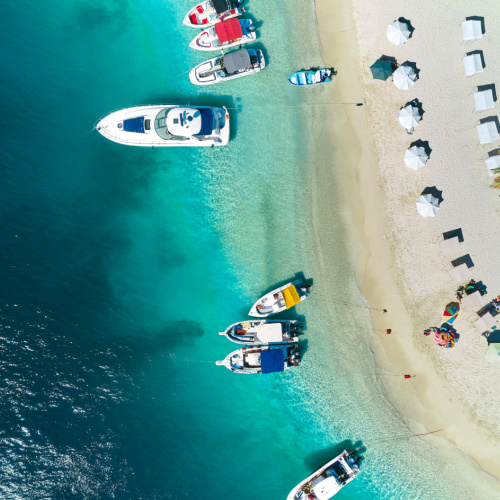
rjankovsky/Shutterstock
When Is the Best Time to Visit Venezuela?
The best time to visit Venezuela is during the dry season, from November to April. During these months, the weather is warm and sunny, with average temperatures ranging from 77 to 86 degrees Fahrenheit. There is also less rainfall during the dry season, making it ideal for exploring the country’s many outdoor attractions.
Here are some of the benefits of visiting Venezuela during the dry season:
- Mild weather: The weather in Venezuela during the dry season is generally mild and pleasant, making it ideal for sightseeing, hiking, and other outdoor activities.
- Sunny skies: The dry season in Venezuela is known for its sunny skies, with little rainfall. This means you can enjoy the country’s beautiful beaches, lush rainforests, and towering mountains without having to worry about getting wet.
- Clear waters: The dry season is also the best time to go diving and snorkeling in Venezuela, as the waters are clearer and visibility is better.
- Less rainfall: With less rainfall during the dry season, you can be sure that your travel plans won’t be disrupted by bad weather.
Here are some specific examples of how you can enjoy the most of Venezuela during the dry season:
- November to December: The weather in November and December is typically warm and sunny, with occasional showers. This is a great time to visit for swimming and sunbathing at Los Roques National Park, exploring the Canaima National Park, and visiting the colonial city of Coro.
- January to February: The weather in January and February is also typically warm and sunny, with occasional showers. This is a great time to visit for trekking to Angel Falls, exploring the Gran Sabana region, and visiting the colonial city of Mérida.
- March to April: The weather in March and April is also typically warm and sunny, with occasional showers. This is a great time to visit for birdwatching in the Henri Pittier National Park, exploring the Morroscoy National Park, and visiting the colonial city of Maracaibo.
While there are many great times to visit Venezuela, if you’re looking for the best weather and the most opportunities to enjoy the country’s outdoor activities, then we recommend visiting during the dry season, from November to April.
Note: It is important to note that Venezuela is a politically and economically unstable country, so it is important check the latest travel advisories from your government before booking your trip.
 Average Temperatures by Month
Average Temperatures by Month
|
Jan |
Feb |
Mar |
Apr |
May |
Jun |
Jul |
Aug |
Sep |
Oct |
Nov |
Dec |
| Fahrenheit |
74°
|
74°
|
73°
|
73°
|
73°
|
72°
|
72°
|
72°
|
73°
|
73°
|
74°
|
74°
|
| Celsius |
23°
|
23°
|
23°
|
23°
|
23°
|
22°
|
22°
|
22°
|
23°
|
23°
|
24°
|
24°
|
Climate in Venezuela
Summer Season in Venezuela
Venezuela has a tropical climate with distinct wet and dry seasons. The summer season, from December to April, falls within the dry season, offering warm and sunny weather with temperatures typically ranging from 77°F to 91°F. It's an ideal time for beach vacations, exploring national parks like Canaima, and enjoying outdoor adventures in the country. The dry and sunny weather is perfect for experiencing Venezuela's diverse landscapes.
Rainy Season in Venezuela
Venezuela's rainy season occurs from May to November, with the heaviest rainfall in June and July. The rain can be intense and may lead to flooding in some regions. While travel is still possible during this period, it's essential to be prepared for wet conditions.
Winter Season in Venezuela
Venezuela's "winter" coincides with the dry season from December to April, offering drier and more pleasant conditions for exploring the country's natural beauty. This is a great time for hiking, wildlife experiences, and enjoying Venezuela's rich cultural heritage.
Our Recommendations
| Destination |
Jan |
Feb |
Mar |
Apr |
May |
Jun |
Jul |
Aug |
Sep |
Oct |
Nov |
Dec |
| Venezuela |
 |
 |
 |
 |
 |
 |
 |
 |
 |
 |
 |
 |






